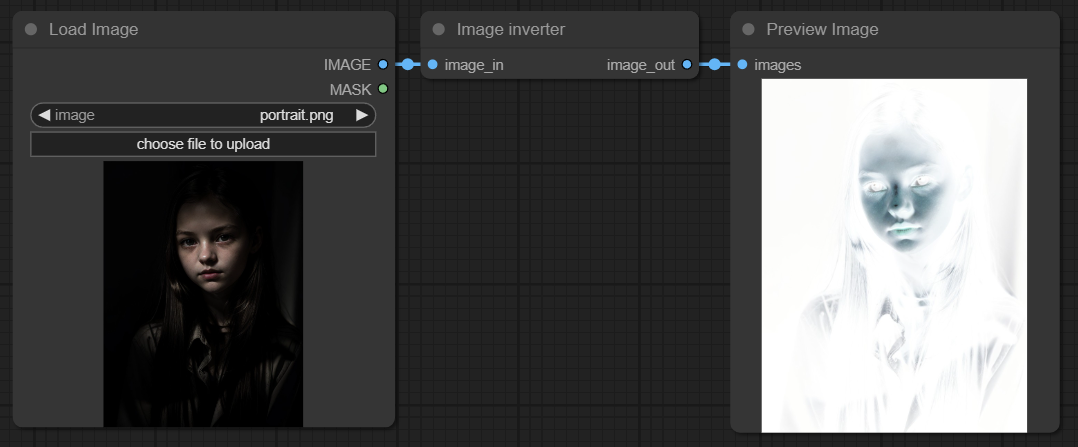-
Notifications
You must be signed in to change notification settings - Fork 8
deploying
Custom nodes are loaded by ComfyUI based on the NODE_CLASS_MAPPINGS attribute, which is a dictionary with a globaly unique node name as the key, and the custom node type as the value. Optionally, you can also provide a NODE_DISPLAY_NAME_MAPPINGS which maps the unique node name to a display name.
If you have something really simple, you can just put the python file in the custom_nodes directory, and add
NODE_CLASS_MAPPINGS = { "my unique name" : SimpleCustomNode }
NODE_DISPLAY_NAME_MAPPINGS = { "my unique name" : "Image inverter" }Here's a screenshot of it working...

But it's better practice for custom nodes to be in their own subdirectories (and if you're going to deploy them through git that's how they'll end up), in which case you need to add an __init__.py file, which will look like this:
from .simple_source_file import SIMPLE_CUSTOM_NODE
NODE_CLASS_MAPPINGS = { "my unique name" : SimpleCustomNode }
NODE_DISPLAY_NAME_MAPPINGS = { "my unique name" : "Image inverter" }
__all__ = ['NODE_CLASS_MAPPINGS', 'NODE_DISPLAY_NAME_MAPPINGS']Not sure what an __init__.py file is? It's what python loads when a module (directory) gets imported. For custom nodes you just need to know that you create a directory (in custom_nodes), and in that directory you have your source code file, and the init.py with the code above in. It doesn't need anything else (for now).